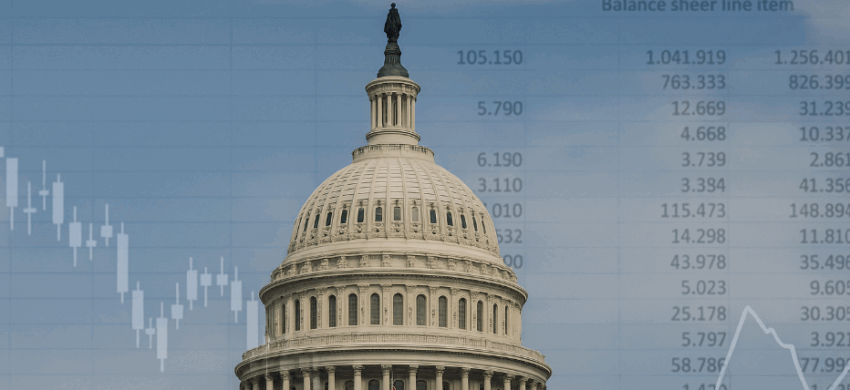The potential dismantling of the Public Company Accounting Oversight Board (PCAOB) may not dominate headlines, but its implications are far-reaching. Created in the wake of historic accounting scandals, the PCAOB has played a critical role in protecting investors, strengthening audit integrity, and restoring public trust in financial reporting. Its proposed elimination raises serious questions about the future of audit oversight in the U.S. capital markets.
We need to remember the lessons that led to the PCAOB’s creation—lessons written in the fallout of corporate fraud and investor betrayal. As proposals emerge to eliminate the Board and shift its authority to the SEC, it’s worth examining what’s been gained over the past two decades—and what we stand to lose.
A Quick History Lesson—Why the PCAOB Exists
To understand what’s at stake, you have to go back to the early 2000s, when corporate fraud was practically its own sector. Companies like Enron and WorldCom collapsed in spectacular fashion after cooking the books with the help of what were then “respected” accounting firms. One of the Big Five—Arthur Andersen—was caught so deep in the Enron debacle that it went belly up. Investors lost billions. Confidence in financial markets hit the floor.
Congress responded with the Sarbanes-Oxley Act of 2002, and out of that came the PCAOB—a new sheriff in town to regulate public company audits. No more self-regulation. No more auditors rubber-stamping shady financials without consequence. The PCAOB’s mandate: inspect, enforce, and set auditing standards to protect the public.
What the PCAOB Has Actually Done Right
This isn’t some bloated agency sitting on its hands. Since its creation, the PCAOB has been getting real work done:
- Auditor Accountability: It’s inspected thousands of audit firms globally and caught many not doing their jobs. That’s not just paperwork—it’s preventing financial blowups before they start.
- Standard-Setting Power: The Board has issued updated audit standards on critical issues like internal controls, fraud risk, and auditor transparency. It basically rewrote the rules of the game for auditors.
- Disciplinary Action: When audit firms or partners mess up, the PCAOB doesn’t just wag a finger—it issues fines, bans, and publishes the violations to keep firms honest.
- Investor Tools: Ever wondered who exactly audits a public company or what their history is? PCAOB created the AuditorSearch tool to shine some light on the people behind the numbers.
This isn’t light-touch regulation. This is real guardrail work that’s been keeping capital markets safer than they were two decades ago.
So Why Abolish It Now?
In a surprise move, the House Financial Services Committee voted to include a provision in the 2025 budget reconciliation bill that would abolish the PCAOB, reassigning its functions to the SEC. The stated rationale? Streamlining, reducing redundancy, saving money.
Sounds efficient on paper. But here’s where things start to unravel.
What Happens If PCAOB Is Scrapped?
Let’s be clear: the SEC is already juggling an enormous mandate—securities law enforcement, market surveillance, investor protection, crypto crackdowns—you name it. Absorbing the PCAOB’s complex audit oversight responsibilities would not be a clean handoff. It’s more like trying to stuff a Formula One engine into a Toyota Corolla.
Here’s what could go wrong:
- Loss of Audit Expertise: PCAOB staff aren’t just bureaucrats—they’re deep subject-matter experts in auditing. That’s a very different skill set from securities lawyers or general financial examiners at the SEC.
- Weakened Oversight: Without a dedicated audit watchdog, inspection quality could dip. And the SEC would likely face the temptation to de-prioritize audit regulation amid flashier headlines.
- Investor Trust: One of PCAOB’s greatest strengths has been its independence. Fold it into the SEC and you risk politicizing audit oversight—just as investor confidence is most needed in volatile markets.
- Global Audit Agreements at Risk: PCAOB has painstakingly negotiated bilateral inspection deals with foreign regulators. Those don’t automatically transfer to the SEC. We could lose access to cross-border audit reviews overnight.
What’s the Endgame Here?
Let’s not forget why the PCAOB exists in the first place: because the audit profession failed, and people paid dearly for it. Dismantling it now—without a proven, resourced, and credible alternative—isn’t streamlining. It’s unraveling.
There’s always room to evaluate whether a regulator is effective. But you don’t yank out the smoke detectors because the house hasn’t burned down in a while. The PCAOB may not be flashy, but it’s foundational to financial integrity.
Bottom line: If this provision goes through, we’re not just reorganizing an agency—we’re betting the future of audit oversight on a system that already proved it couldn’t police itself.
We need to remember how we got here before we decide to throw out one of the most important reforms in modern financial history.
